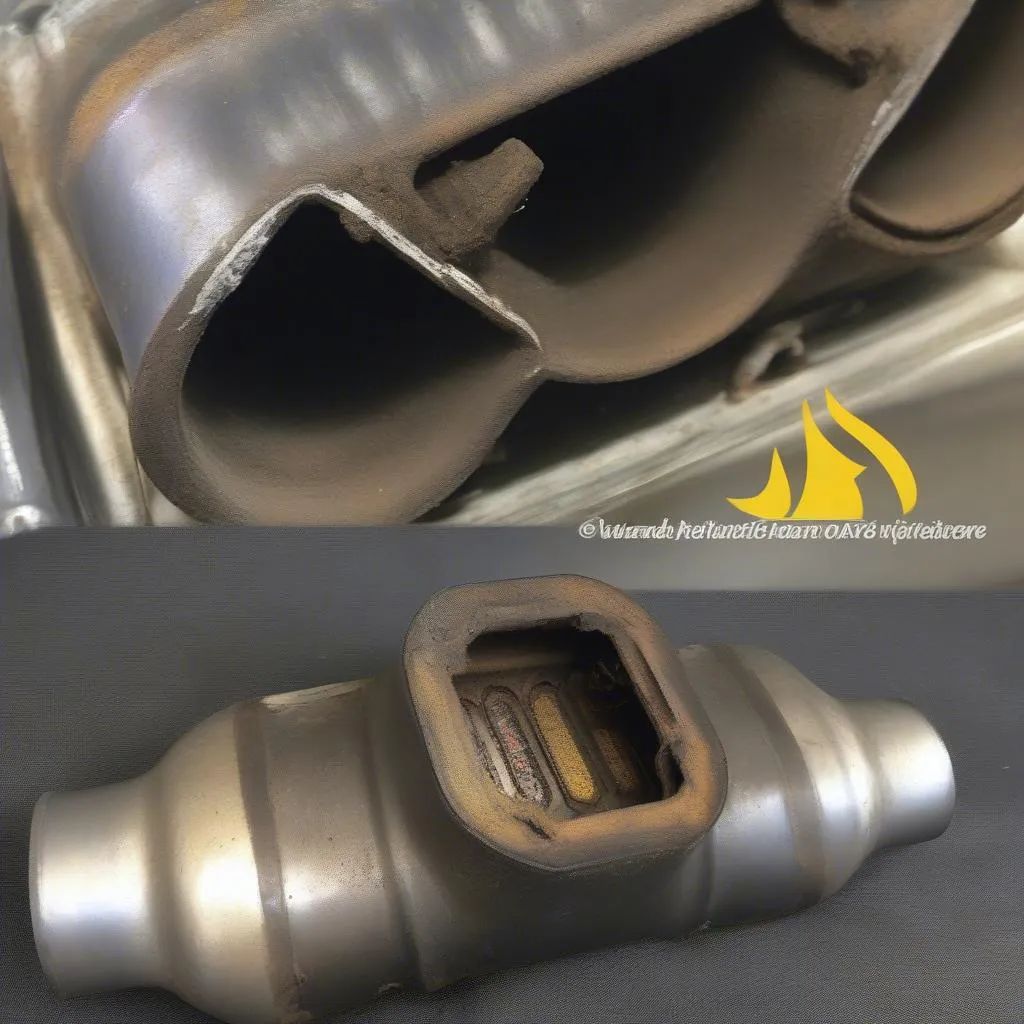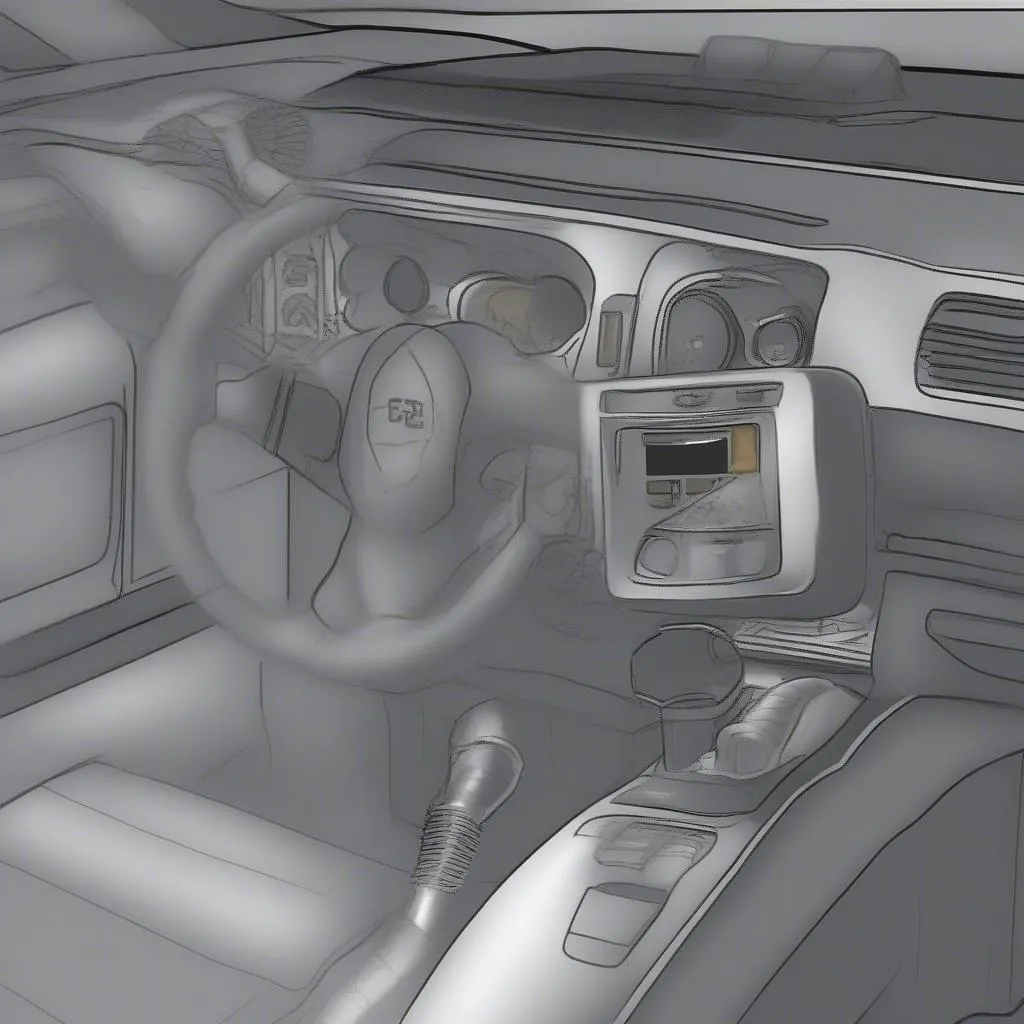You’re driving your European car down the highway, and suddenly the “check engine” light comes on. You pull over, check the engine compartment, but everything seems fine. You go to your local mechanic, and they tell you the code is P0420. What does this mean? Is your car about to explode?
Don’t worry. It’s not the end of the world. P0420 is a common code, and it usually indicates a problem with your car’s catalytic converter. Let’s take a closer look.
What Does P0420 OBD Code Mean?
P0420 is a diagnostic trouble code (DTC) that refers to a “Catalyst System Efficiency Below Threshold (Bank 1)”. Essentially, it means that your catalytic converter is not working as effectively as it should.
Technical Perspective
The catalytic converter is an important part of your car’s exhaust system. Its main job is to convert harmful pollutants, like carbon monoxide and hydrocarbons, into less harmful gases. The P0420 code means that the onboard diagnostic system (OBD) has detected that the converter is not doing its job properly.
Real-World Implications
A failing catalytic converter can affect your car’s performance in several ways. It can lead to reduced fuel economy, decreased engine power, and even cause the car to run rough or stall.
Causes of P0420 OBD Code
There are several reasons why you might see the P0420 code. Here are some of the most common:
- Damaged Catalytic Converter: This is the most likely cause of a P0420 code. Over time, the catalytic converter can become damaged due to heat, vibration, or even chemical reactions. A clogged catalytic converter will prevent the exhaust gases from flowing through properly, resulting in reduced efficiency.
- Oxygen Sensor Failure: Your car’s oxygen sensors play a critical role in monitoring the efficiency of the catalytic converter. If one or more of the sensors fail, it can cause the OBD system to throw a P0420 code.
- Fuel Mixture Problems: If your car’s engine is running too rich or too lean, it can affect the catalytic converter’s ability to function properly. This can cause a P0420 code.
- Exhaust Leaks: A leak in your exhaust system, such as a broken pipe or cracked manifold, can also cause a P0420 code. This leak can allow unburned fuel to bypass the catalytic converter, reducing its efficiency.
Troubleshooting P0420 OBD Code
If you’re dealing with a P0420 code, the first step is to understand the underlying problem.
Professional Diagnosis: The First Step
A qualified mechanic will need to diagnose the problem and determine the root cause. They will start by using a scan tool to read the OBD codes and review other sensor readings. They will also likely inspect the catalytic converter and exhaust system for any signs of damage or leaks.
Common Findings
- Catalytic Converter Failure: The most common finding is a damaged catalytic converter. This may be due to age, physical damage, or even the accumulation of pollutants.
- Oxygen Sensor Issues: Sometimes, the oxygen sensor might be the culprit. Oxygen sensors are essential for monitoring exhaust gas content and can become fouled or malfunction over time.
Tips for Preventing P0420 Code
Here are some tips to help prevent a P0420 code:
- Regular Maintenance: Make sure you get your car’s exhaust system inspected regularly by a qualified mechanic.
- Quality Fuel: Using high-quality fuel can help prevent issues with your car’s engine and catalytic converter.
- Drive Regularly: If your car sits idle for long periods, it can increase the risk of problems with the catalytic converter.
Frequently Asked Questions About P0420 OBD Code
Can I drive my car with a P0420 code?
Yes, you can drive your car with a P0420 code. However, it’s important to address the problem as soon as possible. A failing catalytic converter can damage other parts of your exhaust system, leading to expensive repairs.
How much does it cost to fix a P0420 code?
The cost of repairing a P0420 code can vary depending on the cause and the severity of the problem. A new catalytic converter can be expensive, but sometimes the problem can be solved with a simple repair, such as replacing a faulty oxygen sensor.
Is there a way to reset the P0420 code myself?
You can try to reset the code yourself using a scan tool. However, if the problem isn’t resolved, the code will likely reappear.
Other OBD Codes Related to P0420
If you’re dealing with a P0420 code, you may also see other related codes, such as:
- P0139: Oxygen Sensor Circuit Slow Response (Bank 1 Sensor 1) [Read More: https://techcarusa.com/obd-code-p0139/]
- P0421: Catalyst System Efficiency Below Threshold (Bank 1)
Conclusion:
The P0420 code is a sign that something is wrong with your car’s catalytic converter. While it might seem daunting, getting a proper diagnosis and repair from a qualified mechanic can get your car back on the road quickly and prevent further issues.
Do you have any questions about P0420 code? Leave a comment below or contact our experts for personalized advice!
Need help getting your car diagnosed or repaired? Contact our team via Whatsapp: +84767531508 for 24/7 support. We’re here to help!
 Damaged Catalytic Converter: A P0420 OBD Code Problem
Damaged Catalytic Converter: A P0420 OBD Code Problem
 Faulty Oxygen Sensor: A Common Cause of P0420 Code
Faulty Oxygen Sensor: A Common Cause of P0420 Code